

FolkWorld's account on the Child Ballads is taking to the Salt Salt Sea. Featuring Captain Ward (as recorded by folk group Shantalla recently) as well as his fellow buccaneers Henry Martin and Sir Walter Raleigh and odd creatures such as The Daemon Lover or The Mermaid (as laid down by Canadian singer-songwriter-banjo-player Old Man Luedecke).
Captain Ward and the Rainbow, or Ward the Pirate, is Child ballad 287. It recounts a tale of the pirate Captain Ward, likely Jack Ward.

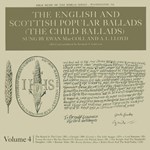

The king sends a ship, the Rainbow, after Captain Ward. In one variant, the ship carries 500 seamen, in another it carries 1,300. Ward defeats the Rainbow and sends taunts back to the king, "If he reign king of all the land, I will reign king at sea." In many variants, Ward claims to have never harmed an English ship.
Come all you gallant seamen bold,
All you that march to drum,
Let's go and look for Captain Ward,
Far on the sea he roams;
He is the biggest robber
That ever you did hear,
There's not been such a robber found
For above this hundred year.
A ship was sailing from the east
And going to the west,
Loaded with silks and satins
And velvets of the best,
But meeting there with Captain Ward,
It proved a bad meeting;
He robbèd them of all their wealth
And bid them tell their king.
O then the king provided a ship of noble fame,
She's call'd the "Royal Rainbow,"
If you would know her name;
She was as well provided for
As any ship could be,
Full thirteen hundred men on board
To bear her company.
'Twas eight o' clock in the morning
When they began to fight,
And so they did continue there
Till nine o' clock at night.
"Fight on, fight on," says Captain Ward,
"This sport well pleases me,
For if you fight this month or more,
Your master I will be."
O then the gallant "Rainbow"
She fired, she fired in vain,
Till six and thirty of her men
All on the deck were slain.
"Go home, go home," says Captain Ward,
"And tell your king from me,
If he reigns king on all the land,
Ward will reign king on sea!"
 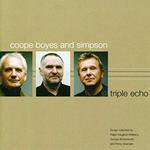 »Although his life reads like a television mini-series, Ward isn't a fictional character. Born at Faversham in Kent, John Ward first worked as a fisherman, joining the navy around 1601. By 1616, he had turned pirate in the Mediterranean, became a Muslim and was living in Tunis where he had built “a fair palace, beautified with rich marble and alabaster stones.” Despite offering James I a reported 30.000 gold crowns for a Pardon to return home, Ward died of plague in Tunis in 1622.«
|
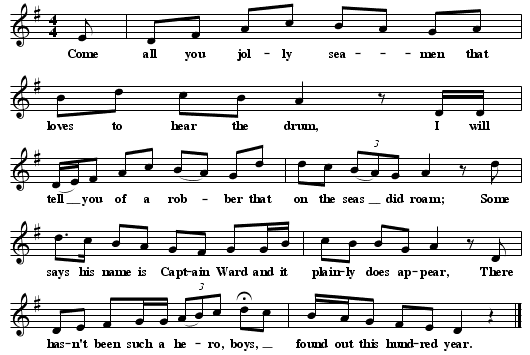
Listen to Captain Ward from: The Demon Barbers, Dr Faustus, Brian Peters, Shantalla, Spiers / Boden, Steve Tilston
Watch Captain Ward from: Faustus, Rachael McShane, Spiers & Boden, Top Floor Taivers Lyrics (© Mainly Norfolk): Ward the Pirate / Captain Ward

"Henry Martin" (also "Henry Martyn" or "The Lofty Tall Ship") is a traditional Scottish folk song about Henry Martin, a seafarer who turns to piracy to support his two older brothers.
The story of Andrew Bartin, based on the original ballad, was included in Francis James Child's collection of The English and Scottish Popular Ballads (Child's Ballads), as Child Ballad 167. However, over the years, through oral tradition, the song had been significantly shortened and the name of the protagonist changed from Andrew Barton to Henry Martin (or Henry Martyn). In this form, the tale also appears in Child's Ballads as Child Ballad 250.
The first known printed version dates from the early 17th century and consisted of 82 verses describing the exploits of Sir Andrew Barton and his two brothers, Robert and John. Barton was a privateer who carried a letter of marque issued by James IV, king of Scotland, giving him the right to arrest and seize Portuguese ships. He is alleged, however, to have exceeded his licence, engaging more generally in piracy. On 2 August 1511, he was killed, and his ship The Lion captured, after a fierce battle with Sir Edward Howard and his brother Thomas Howard, 3rd Duke of Norfolk, who were acting on the authority of the English king Henry VIII.
Musician and folklorist A. L. Lloyd described Henry Martin as "one of the most-sung ballads of our time." It has been recorded, amongst others, by:
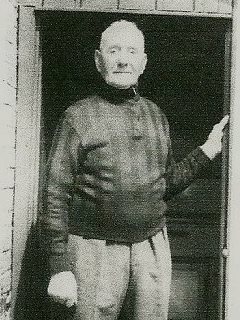
 »For myself, there were two people in the late 1950s whose unforgettable wildly different performances—one at the Troubadour Folk Club in Earl's Court and the other at Ewan MacColl's Ballads and Blues Club in the upstairs room of a pub in the Edgware Road (the name of which I can't remember)—decided for me the musical direction which my life was going to take. That pub, close to the old Metropolitan Theatre, may lie buried along with that famous theatre under the flyover which leads on to the M4westway, but the memory will never, ever fade. The people I'm talking about are Séamus Ennis, whose version of The Devil and the Farmer starts this CD off, and Sam Larner, whose mighty telling of the Henry Martin story in Lofty Tall Ship was probably the single moment that ensured—bewildered though I was by what I thought of at the time at its baffling tune—that this music would embed its hooks into me for life.« (Martin Carthy)
|
 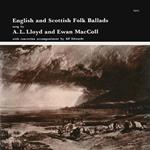 »In the earliest days of capitalist competition, there was often little difference between the merchantman and the pirate ship. In 1746, some Portuguese vessels plundered a rich Scottish ship owned by the merchant John Barton. As a result, the Scottish king granted “letters of reprisal” to the merchant's sons, Andrew, Robert and John. Helped by his two brothers, and armed with the king's permit, Sir Andrew Barton attacked not only ships of the Portuguese trade (at that time the richest in the world, due to discoveries and acquisitions in India) but also Flemish vessels engaged in business, legal or illegal, in the North Sea. Sir Andrew was a fierce man, who sent three barrels of salted Flemish pirates' heads as a present to King James IV in 1506. A few years later, he took to piracy against English ships. Henry VIII sent out several vessels after him, and in a battle on 2 August 1511, Barton was killed, his ship captured, and (it is said) his head was cut off and taken to England for display. A long ballad (82 verses!) was made about the piracy, pursuit and defeat of Sir Andrew Barton. It was printed and sold from cheap stationers' stalls in St. Paul's churchyard and elsewhere. In the course of time, as it was passed on by word of mouth from one country singer to another, it grew shorter. At length, only the first part of the ballad, the account of the piracy, was remembered. Perhaps through mis-hearing at some stage, the name of the bold Scottish seaman had become altered from “Andrew Barton” to “Henry Martin”, and in that form it became fixed and survived well into the twentieth century in many parts of England, in several versions that, on the whole, differ only slightly from each other. The Aeolian (La mode) tune used here was noted some sixty years ago from Roger Luxton, of Halwell, Devon, by the Rev. S. Baring-Gould.«
|
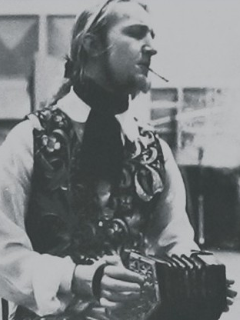
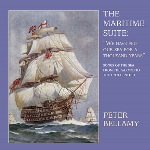
Sir Andrew Barton (c. 1466 – 2 August 1511) was a Scottish sailor from Leith. He gained notoriety as a privateer, making raids against Portuguese ships. He was killed in battle and memorialised in English and Scottish folk songs.
Some of Andrew Barton's trading voyages to Flanders ports in the 1490s are recorded in the Ledger of Andrew Halyburton. He was the oldest of three brothers, a younger brother Robert Barton of Over Barnton became Lord High Treasurer of Scotland.
Andrew became notorious in England and Portugal as a 'pirate', though as a seaman who operated under the aegis of a letter of marque on behalf of the Scottish crown, he may be described as a privateer. The letter of marque against Portuguese shipping was originally granted to his father John Barton by James III of Scotland before 1485. John's ships had been attacked by Portuguese vessels when he was trading at Sluis in Flanders.
James IV revived the letters in July 1507. When Andrew Barton, sailing in the Lion tried to take reprisals against Portuguese ships in 1508, he was detained by Dutch authorities at Veere. James IV had to write to Maximilian, the Holy Roman Emperor, and others to get him released in 1509. Andrew then took a Portuguese ship which carried an English cargo, leading to more difficulties, and James IV had to suspend the letter of marque for a year. Andrew captured a ship of Antwerp in 1509, the Fasterinsevin (the Shrove Tuesday), which did not come within his letter of marque. James IV ordered him to recompense the captain Peter Lempson and his officers for her cargo of woad and canvas.
The Bartons were in demand to support John, King of Denmark, and were allowed by him to harass the shipping of Lübeck. In return for this service, John of Denmark sent James IV timber for the masts of his ships from Flensburg. Andrew joined John's service briefly in the spring of 1511, but sailed away without permission, also taking a ship that James IV had given to John.
Later in 1511, Andrew Barton was cruising the English coast looking for Portuguese prizes when he and his ships the Lion and Jenny Pirwyn were captured after a fierce battle with Sir Edward Howard and his brother Thomas Howard, 3rd Duke of Norfolk, off Kent at the Downs. According to the story told in ballads, Andrew was shot and killed by an English archer during the battle and subsequently beheaded, his head being taken to the English king as evidence of his death. If true, such action would perhaps have been illegal because Barton possessed a letter of marque. Contemporary English and Scottish chronicle accounts agree that Andrew died of wounds received in the fight.
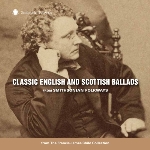
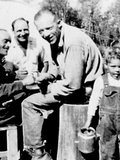
The incident was recalled two years later in the exchange of rhetoric at the battle of Flodden. The story of the sea-battle was told by Raphael Holinshed and in other 16th-century English chronicles. In Holinshed's story the Howards at first pretended only to approach and salute Andrew Barton, but then engaged in battle, Barton's ship was the Unicorn and he died from his wounds. The Scottish survivors were taken to London and kept prisoner in the Bishop of York's lodging, York Place at Whitehall. Edward Hall wrote that Andrew encouraged his men during the fight with his whistle. Hall mentions that the two ships were brought to Blackwall on 2 August 1511, and the prisoners were freed after an interview with the Bishop of Winchester, after acknowledging their piracy.
The Scottish bishop John Lesley gave a similar account of the battle in his chronicle. George Buchanan has the detail that Andrew Barton continued fighting after his leg was broken by a gunshot, and encouraged his sailors by beating a drum before he died from his wounds. Buchanan emphasises that the Howards sailed on the instruction of Henry VIII following a representation by a Portuguese ambassador. Hall wrote that Henry VIII was at Leicester when he ordered the Howards to chase the Scottish ships.
He is the subject of an English folk song entitled Sir Andrew Barton or Andrew Bartin, which is Child ballad number 167.
The most famous lines of this ballad are:
'I am hurt but I am not slain.
I'll lay me down and bleed awhile,
Then I'll rise and fight again.'
His story is also told in a Scottish Child ballad called Henry Martyn (Child ballad number 250). Rudyard Kipling wrote a short story connected with Barton in his Puck of Pook's Hill series.
The Stedman family of which there have been a number of notable members, such as Charles Stedman (1753–1812) and John Gabriel Stedman (1744–1797) have a tradition that Andrew Barton left an only son, Charles, who married Susan Stedman of Leith and took his wife's name. Another notable member was John Andrew Stedman (1778–1833) who was general in the Dutch army during the Napoleonic Wars (his father was a naturalised Dutchman who had been in the Scots Brigade in the service of the States-General of the Netherlands). His son Charles John William Stedman became a Prussian subject, settling at Besselich Abbey, near Coblentz. He was a member of the national assemblies of Frankfurt am Main and Erfurt, and received the title of freiherr (baron). He had a large family, of which nearly all the sons entered the Queen Augusta Regiment of Guards; they reverted to the original family name of Barton.
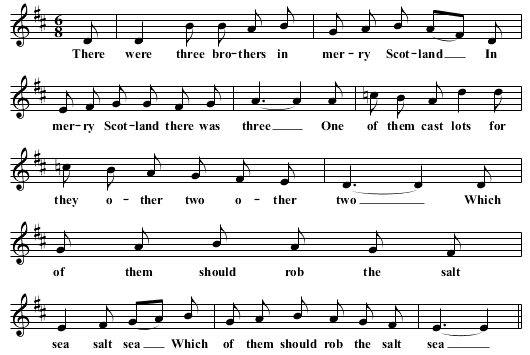
Listen to Henry Martin / Sir Andrew Barton / Lofty Tall Ship from: Dr Faustus, James Findlay, Steeleye Span
Watch Henry Martin / Sir Andrew Barton / Lofty Tall Ship from: Joan Baez, Peter Bellamy, Raymond Crooke, James Findlay Wikipedia Audio Article: Andrew Barton Lyrics (© Mainly Norfolk): Henry Martin / The Lofty Tall Ship / Sir Andrew Barton
"The Sweet Trinity", also known as "The Golden Vanity" or "The Golden Willow Tree", is Child Ballad 286. The first surviving version, about 1635, was "Sir Walter Raleigh Sailing In The Lowlands (Shewing how the famous Ship called the Sweet Trinity was taken by a false Gally & how it was again restored by the craft of a little Sea-boy, who sunk the Gally)".
A captain of a ship (the Sweet Trinity or Golden Vanity or Golden Willow Tree of the title) laments the danger it is in; Sir Walter Raleigh complains that it was captured by a galley, but the more common complaint is that it is in danger from another ship, which may be French, Turkish, Spanish, or (especially in American variants) British. A cabin boy offers to solve the problem. The captain promises him rich rewards, which vary enormously between versions. The boy swims to the enemy ship, bores holes in its hull, and sinks it.
He swims back. Usually, the captain declares he will not take him up, let alone reward him; in some variants, he extorts the rescue and reward by sinking, or threatening to sink, his ship as well, but usually, he drowns (sometimes after saying he would sink the ship if it weren't for the crew). Occasionally, the crew rescue him, but he dies on the deck. In the variant with Raleigh, Raleigh is willing to keep some of his promises, but not to marry him to his daughter, and the cabin boy scorns him. In the New England version recorded by John Roberts (see below), he sinks both ships but is rescued by another one, thus explaining how the story could have been passed on.

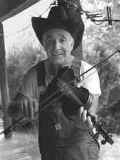

  »The Golden Vanity is an oikotypical ballad which has been collected in Aberdeenshire, the Scottish Borders, England, Ireland, Canada and the Appalachians. The ballad dates back to 1685 when it was published in the Pepysian Collection at Magdalene College, Cambridge under the title The Ballad of Sir Walter Rauleigh His Lamentation or Sir Walter Raleigh Sailing In The Lowlands (1635). In later texts, no reference to Sir Walter Raleigh can be found. Tristram Potter Coffin states: “In America, Sir Walter Raleigh is no longer connected with the song, the ships have Golden Vanity and Turkish Revelee names which names which may vary with historical circumstances, and a more positive ending.”
The captain declares the ship is in peril and has come under threat by another vessel, usually French, Turkish or Spanish. The ship’s cabin boy offers to sink the foreign vessel, in return for rewards such as gold and the Captain's daughter’s hand in marriage. The cabin boy successfully swims and sinks the enemy by boring holes in the ships side, then returns to The Golden Vanity. In some variants, the boy is rewarded and in others he is shot and drowned or taken aboard the ship too late and dies on deck. In select texts, he drowns and returns as a ghost to exact revenge and sinks the ship.
The Golden Vanity, otherwise known as The Sweet Trinity or Golden Willow Tree, features in Volume 5 [of] Francis James Child’s The English and Scottish Popular Ballads. The ballad has long been procured in the North East of Scotland and features in Volume 1 of the celebrated Greig-Duncan Folk Song Collection. Reverend James Duncan and Gavin Greig collected Ye Gouden Vanitie from a manuscript written and sent by George F. Duncan on 2 May 1908 and is comprised of verses with an “eek-eedle-ee and the Lowlands low” refrain. George states: “I have a notion I have heard mother sing it. It is not entirely the same as any printed copy I have seen. I should have said that the music had come through Christie’s hands.” Version C is titled The Lowlands So Low and was collected from John Calder. “Bell Robertson traces the ballad back through her mother to the early years of the last century.” Versions found in the Greig-Duncan are all in the Doric vernacular. William Christie states in Volume 1 of his Traditional Ballad Airs that the air “was noted from the singing of a native in Buchan. It was long well known and may still be known to some in the three northern Counties of Scotland.”
The ballad is found in the Missouri State Max Hunter Folksong Collection Archive. The ballad features in John Ord’s Bothy Songs and Ballads as well as Gavin Greig’s Folk-Song of the North-East—which reinforce the notion that the ballad was ever-present in the ballad heartland of Aberdeenshire as well as in several countries. Several versions of the ballad feature on Tobar an Dualchais—Kist of Riches online archive from contributors such as John Strachan (SA1952.026), Willie Mathieson (SA1952.008) and Lizzie Higgins (SA1970.022) and Jeannie Roberton (SA1957.44) The ballad was collected by Alan Bruford in Fetlar, Shetland in 197from Catherine Mary Anderson (SA1970.245).
Lowlands Low was printed as a broadside for the Poet’s Box in Glasgow in 1877, with an earlier Bodleian Broadside printed in London between 1849 and 1862. It also features in Ford’s Vagabond Songs of Scotland. Duncan Williamson recorded The Golden Vanity on Travellers’ Tales, Volume 2, Songs, Stories and Ballads from Scottish Travellers in 2002. Ewan MacColl recorded The Sweet Kumadee on his 1964 Folkways release The English and Scottish Popular Ballads Volume 2.
[...]«
|
 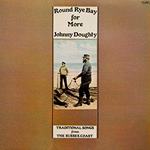 Johnny Doughty sang The Golden Vanity at home in Brighton, Sussex, in Summer 1976 to Mike Yates. This recording was published a year later on his 1977 Topic album of traditional songs from the Sussex Coast, Round Rye Bay for More, and in 1996 on the Topic celebration anthology of English traditional music, Hidden English.
Sir Walter Rawleigh has built a ship in the Netherlands, Sir Walter Rawleigh has built a ship in the Netherlands, And it is called the Sweet Trinity, And was taken by the false gallaly, Sailing in the Lowlands. »So begins a blackletter broadside, “shewing how the famous ship called the Sweet Trinity was taken by a false Gally, and how it was again restored by the craft of a little sea-boy, who sunk the Gally,” that was printed during the period 1682-85 by Joshua Conyers, “at the Black-Raven, the 1st shop in Fetter-lane, next Holborn.” The history books appear to have missed this particular episode in Raleigh’s life—no doubt because it was a flight of Conyers’, or some other unknown printer’s, imagination; a simple attempt to increase sales by the addition of a romantic and well-known name to an otherwise commonplace tale. Whatever the origin, the ballad certainly caught the popular imagination with the result that more than a hundred sets have been collected throughout England, Scotland, America and Australia. Johnny’s final couplet is, to my knowledge, unique to his version.« (Mike Yates) »[...] Jean Ritchie recorded the ballad on her 1961 Folkways album, British Traditional Ballads in the Southern Mountains Volume 1. Jean’s version, which she learned the from her mother, corresponds with Story Type A found in Tristram Potter Coffin’s The British Traditional Ballad in North America. The refrain “As she sailed upon the low, and lonesome low, She sailed upon the lonesome sea” seems to be typical of variants of the ballads recorded and collected in the Ozarks and Appalachian mountains and references The Merry Golden Tree, Weeping Willow Tree, or Green Willow Tree as the ship. The version featured on my Dark Turn of Mind EP is an amalgamation of verses from the text featured as Version A in Cecil Sharp’s English Folk Songs from the Southern Appalachians and from Version B of Child’s Popular Ballads. Coffin states: “The Sweet Trinity in this country (America) does not really follow any of the Child versions textually, although there is on the whole a closer resemblance to Child B and C than to Child A.” The Golden Vanity is one of many classical ballads which ably showcases the global universalism of ballads.« |
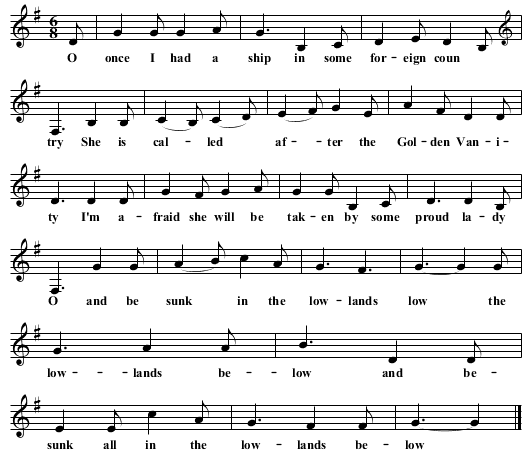
Listen to Sweet Trinity / Golden Vanity / Turkish Revery from: Iona Fyfe, Lack of Limits, Lankum, The Outside Track, Alasdair Roberts, TRADarrr
Watch Sweet Trinity / Golden Vanity / Turkish Revery from: The Askew Sisters, Aodán Coyne, Crooked Still, Faustus, Sam Kelly, The Outside Track, Alasdair Roberts, TRADarrr Lyrics (© Mainly Norfolk): The Golden Vanity / The Old Virginia Lowlands



The Mermaid is a ballad, catalogued as Child Ballad #289, Roud 124. Dating to around the mid-18th century, this song is known by a number of names, including Waves on the Sea, The Stormy Winds and The Wrecked Ship.
The song belongs in the category of sea ballads, being a song sailors sung during their time off and not while they worked, but is more commonly thought of as a sea shanty. It is well known in American folk tradition, and the text has appeared in many forms in both print and oral mediums. The ballad remains part of American culture as a song sung at camps operated by the Boy Scouts of America as well as in public school music education classes.
The ballad describes a ship that left port, its misadventure and eventual sinking. The moral of the song is that mermaids are a sign of an impending shipwreck. It is sung from the point of view of a member of the ship's crew, although the ship sinks without any survivors. In most versions the ship is unnamed but in a version sung by Almeda Riddle, the mermaid disappears and the ship is identified as the Merrymac. Often the ship is said to be departing on a Friday morning, but there are other versions of the lyrics including one that has it leaving on a Saturday night. On the way out to sea, the captain sees a mermaid with a "comb and a glass in her hand".
Three parallel stanzas most often follow describing how three of the crew members, contemplating impending disaster, would rather be somewhere else than on the ocean floor; for example, the cook would rather be with his pots and pans. In English versions crew members often identify their home port and the people (parents, wives, children) who will mourn for them.
The home of the crew members varies from version to version, but it has been assigned to almost every port town in Britain and the East Coast of the United States. At the end of the ballad the ship turns around three times and sinks with all hands; there are no survivors.
Between each of the verses there oftentimes is a chorus describing the conditions sailors face in a storm and the state of the sea that was caused by the mermaid.
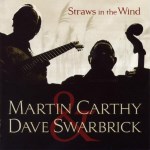 »When I was a child, Mermaid was a song which we all sang a lot. That we didn't know all the words didn't matter. When in the summer of 1961 I met The Charles River Valley Boys all from Harvard University and they sang an Old Timey version of the song with the memorable line in the chorus “…The landlord lies sleeping down below…”, joy was unconfined. However the version sitting in the Penguin Book of English Folk Songs learned by E.T. Sweeting from a James Herridge in Twyford in 1906 is an altogether different kettle of fish from these jolly romps and makes for a much darker journey. Given that, as A.L. Lloyd says, the sight of a mermaid was the worst of omens, you would think that it would be an invitation to all sorts of songs but it's not so: this one song in its various forms and (possibly) the children's song The Big Ship Sails on the Alley-O seems to be it.« (Martin Carthy)
|

|


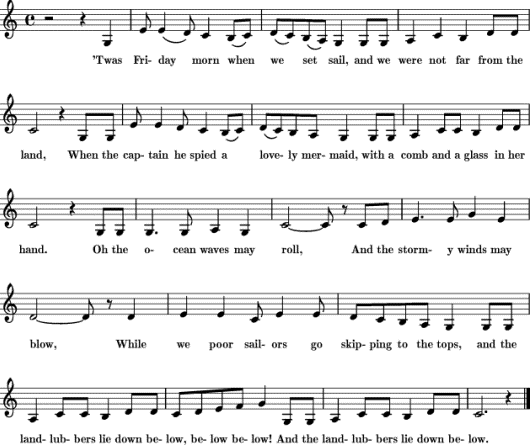
Listen to The Mermaid from: All Folk'd Up, Basco, Martin Carthy, Pete Coe, Fiddler's Green, JigJam, Paul McKenna, Peggy Seeger, Trail West
Watch The Mermaid from: All Folk'd Up, Jesse Ferguson, JigJam , Trail West Lyrics (© Mainly Norfolk): The Mermaid
"The Daemon Lover", also known as "James Harris", "James Herries", or "The House Carpenter" (Roud 14, Child 243) is a popular Scottish ballad.

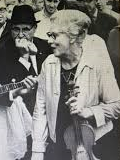
A man (usually the Devil) returns to his former lover after a very long absence, and finds her with a husband (usually a carpenter) and a baby. He entices her to leave both behind and come with him, luring her with many ships laden with treasure. They board one of his ships (which in many versions she is surprised to find does not have a crew) and put to sea.
But if I should leave my husband dear,
Likewise my little son also,
What have you to maintain me withal,
If I along with you should go?"
"I have seven ships upon the seas,
And one of them brought me to land,
And seventeen mariners to wait on thee,
For to be love at your command.
She soon begins to lament leaving her child, but is heartened by spying a bright hill in the distance. Her lover informs her that the hill is heaven, where they are not bound. Instead he indicates a much darker coast, which he tells her is hell, their destination. He then breaks the ship in half with his bare hands and feet, drowning them both. In other versions, the ship is wrecked by a storm at sea, springing a leak, causing the ship to spin three times and then sink into the cold sea.
O what a bright, bright hill is yon,
That shines so clear to see?"
"O it is the hill of heaven," he said,
"Where you shall never be."
"O what a black, dark hill is yon,
"That looks so dark to me?"
"O it is the hill of hell," he said,
"Where you and I shall be.
This ballad was one of 25 traditional works included in Ballads Weird and Wonderful (1912), edited by R. Pearse Chope and illustrated by Vernon Hill. The New York Times review of Hill's illustrations noted those accompanying this ballad as a particular highlight:
... the design of Satan rushing down through the waves with the boat containing the faithless wife, is tremendous. Satan himself has one of the most graceful and beautiful human bodies ever drawn; the rhythm of the whole is thrilling, and the conventionalized waves are splendid.
Many American versions use the title "The House Carpenter".
Elizabeth Bowen's 1945 short story "The Demon Lover" uses the ballad's central conceit for a narrative of ghostly return in wartime London.
Shirley Jackson's collection The Lottery and Other Stories includes "The Daemon Lover", a story about a woman searching for her mysterious fiancé named James Harris.
Versions of the song, under its several titles, have been recorded by:
  »In the 17th century a very popular ballad was printed by several broadside publishers, entitled: A Warning for Married Women, being an example of Mrs Jane Reynolds (a West-country woman), born near Plymouth, who, having plighted her troth to a Seaman, was afterwards married to a Carpenter, and at last carried away by a Spirit, the manner how shall be presently recited. To a West-country tune called The Fair Maid of Bristol, Bateman, or John True. Samuel Pepys had this one in his collection also. It was a longish ballad (32 verses) but a very poor composition made by some hack poet. Perhaps the doggerel writer made his version on the basis of a fine ballad already current among folk singers. Or perhaps the folk singers took the printed song and in the course of passing it from mouth to mouth over the years and across the shires they re-shaped it into something of pride, dignity and terror. Whatever the case, the ballad has come down to us in far more handsome form than Pepys had it. Though very rarely met with nowadays, it was formerly well-known in Scotland as well as in England. For instance, Walter Scott included a good version in his Minstrelsy of the Scottish Border (1812 edn.). Generally the Scottish texts are better than the English ones, none of which tell the full story (we have filled out our version by borrowing some stanzas from Scottish sets of the ballad), but none of the Scottish tunes for it are as good those found in the South and West of England. Our present tune was noted by H. E. D. Hammond from Mrs Russell of Upway, near Dorchester, Dorset, in 1907. Cecil Sharp considered it “one of the finest Dorian airs” he had seen. Dr Vaughan Williams made a splendid choral setting of the opening verses of this ballad, which he called The Lover's Ghost.«
(A.L. Lloyd) |
  »This is a haunting version of an old ballad which has been done by many singers including Bob Dylan. It is also called James Harris or The Demon Lover (Child coll. #243) and dates back to a song by London-based ballad writer Laurence Price in 1657. The original title was A Warning for Married Women and is based on the story of Mrs. Jane Reynolds, “a West-Country Woman, born near Plymouth; who having plighted her troth to a Sea-man, was afterwards Married to a Carpenter, and last carried away by a Spirit...” It has everything a good ballad needs: a lovely lady, a husband, a lover, ships, heartbreak, death and the devil—what more can you ask for? Sandra found this version on an album by Mick McAuley.«
»A.L. Lloyd gives me goose bumps in his version of this 17th century ballad. I've since heard many beguiling variants but I always return to this one for its poetic turns of phrase and eerie tune (collected from Mrs Russell of Upway, Dorset). It may have started out as a moral tale but I like the ambiguity of this retelling.«
(Emily Portman)
|
  »This version is almost a “short and sweet” take on the Child Ballad Jane Reynolds and James Harris. In that take on the story Jane is a young lass from around Plymouth. Now Jane’s just getting married to her “comely proper youth” James, when in bursts the press-gang right on cue. So off he trots to sea for three years, and then dies. Jane then marries a carpenter. Four years, three kids down the line who appears on the scene; yeah it’s Jimbo the friendly ghost. After a short bit of banter she decides sod the kids, the husband the house and the car, “I'm off to sea with my dead ex”. And they were never seen again. Then the poor old carpenter hangs himself. In fact that version’s just so much more interesting than mine. Sorry.«
|
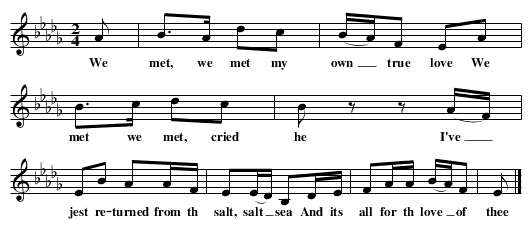
Listen to Daemon Lover / House Carpenter / Banks of Sweet Viledee from: Boiled In Lead, Cara, Cara (Live), James Findlay, Harmony Glen, Andy Irvine, Sam Kelly, Geraldine MacGowan, Alasdair Roberts, Pauline Scanlon, Jenny McCormick, Runa, Hedy West
Watch Daemon Lover / House Carpenter / Banks of Sweet Viledee from: Cara, Furrow Collective, Sam Kelly, Louise / Rynhart, Myrkur, Nickel Creek, Pentangle, Chris Thile Lyrics (© Mainly Norfolk): The Demon Lover / The House Carpenter

Text is available under the Creative Commons Attribution-ShareAlike License.
Date: February 2020.
Photo Credits:
(1) Dutch Attack on the Medway, June 1667 by Pieter Cornelisz van Soest,
(2) Ewan McColl,
(3)-(5) Shantalla,
(6) Coope Boyes & Simpson,
(8) Sir Andrew Barton,
(9) Joan Baez,
(10) Sam Larner,
(11) A.L. Lloyd & Ewan McColl,
(12) Peter Bellamy,
(13) Warde Ford,
(15) Sam Kelly,
(16) Doug Wallin,
(17) Iona Fyfe,
(18) Johnny Doughty,
(20) Pete Coe,
(21) Golden Eagle String Band,
(22) Old Man Luedecke,
(23) All Folk'd Up,
(24) Martin Carthy,
(26) Mermaid,
(27) Dorothy Rorick,
(28) The Furrow Collective,
(30) James Findlay
(unknown/website);
(7) 'Captain Ward and the Rainbow',
(14) 'Henry Martin',
(19) 'The Sweet Trinity',
(25) 'The Mermaid',
(31) 'The Daemon Lover'
(by ABC Notations);
(29) Cara
(by Walkin' Tom).